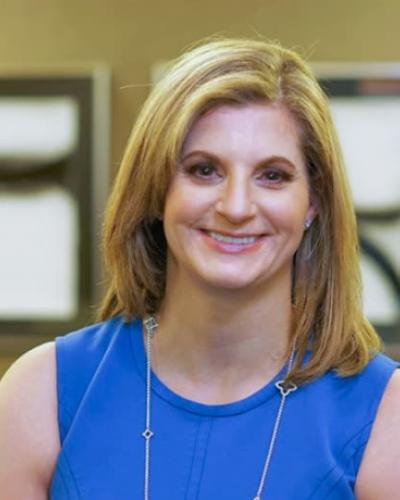The Department of History interviewed Cornell Alumna Erica Siegel Henning in the Fall of 2019. Erica was an undergraduate history major who has gone on to pursue a career in real estate investing. Ms. Henning has a Master of Public Administration from Cornell’s Institute of Public Affairs (CIPA) and a Master of Business Administration from the Wharton School of Business. For her full biography, please visit her LinkedIn site.
1. How have the history skills of analysis and writing been useful in your career?
As a history major at Cornell, I developed my critical thinking and writing skills. Professors in the History Department wouldn’t let you get away with being intellectually lazy. That sharp focus and disciplined way of thinking have served me well throughout my career. I’ve had the confidence to ask questions and challenge conventional wisdom. Good writing is such an important skill, even if one of the most underrated. For example, I regularly send out investment updates and reports to investors. If they have to spend time figuring out what I’m trying to say, as opposed to the substance of what I’m saying, I haven’t done my job.
2. How have you used your history skills and knowledge in a field other than history?
After graduating from Cornell, I earned an MBA from Wharton and have worked in the commercial real estate industry at investment firms, lenders and developers. The analytical and critical thinking skills I developed as a history major have helped me to successfully pivot to different roles throughout the industry. For example, when I’m considering the acquisition of a property, I use a financial model to help determine the price I’m willing to pay. However, the model is only as good as its underlying assumptions. The real skill is the ability to evaluate and critically think about a lot of information to ultimately determine appropriate assumptions for the particular investment you’re considering. The past isn’t necessarily a good predictor of the future. In the case of real estate, people’s preferences change over time. Just think of the effect that the growth in online shopping has had on brick and mortar retailers, and as a consequence, those retailers’ landlords.
3. What career advice might you have for history majors?
I would suggest that history majors pursue their interests. Although it may not seem so when you’re just starting out, there’s absolutely a place for history majors throughout the business world. When I began my career, I had to get past the HR gatekeepers that were simply looking for business and finance majors. The key is persistence and connecting with people that appreciate the value of a history major from a top school like Cornell. In the long-run, it’s not an accident that executives at the top of many organizations have liberal arts degrees, including history majors.
4. I read the Cornell Real Estate Review article about your talk for the Baker Program in "Real Estate's Distinguished Speaker Series." In the talk, you mentioned not falling into the "Google Earth Trap" and the importance of "spending time on the ground assessing real estate investments." You also mentioned, "Putting the investor first" and that students should pursue what is intrinsically interesting to them.
Reflecting on these statements, can you elaborate on how your degree in history helped you with those three points?
The Google Earth Trap:
As a real estate investor, my philosophy is that you cannot just sit in an office and be effective. You need to get out and see what it feels like on the ground. For example, Google Earth can show you what an apartment building looks like, but it doesn't tell you how the place feels: what it feels like to be a single woman or a mom with kids coming home after work. But, those types of factors impact the feeling of safety and security, and in turn, a property’s demand. If you only rely on Google Earth, you’re going to miss that perspective.
Putting the investor first:
I was a history major in the mid-1990s, and I also remember the insider trading scandals from the 1980s. When I’m making investment decisions, the priority is the investor and what’s in his or her best interest. All else follows from that. It’s important to consider the connection between the decisions I make and the person whose money I am investing.
Students should pursue what is intrinsically interesting to them.
The technicalities of an industry can be learned as one goes along in life. But studying what is intrinsically interesting to you as a student provides a solid foundation from which to keep learning long after you graduate. Particularly in today’s fast-moving knowledge economy, the desire and ability to learn is an invaluable skill.
5. Explain why critical thinking is so key to decision making in the business world?
Life appears in shades of grey. Companies must make the best decision with the information available. When we have incomplete information, we must use critical thinking skills. What information don't we have, and what do we have? What conclusions can we make, and what action can we take based on these conclusions? It is important to avoid analysis paralysis: looking at the same data over and over without making a decision. It takes confidence and critical thinking skills to make decisions, as opposed to simply handing off that responsibility to someone else. At the end of the day, business leaders need to be comfortable making the tough calls and decisions, even when others may disagree.
I also became aware of unintended consequences. It’s inevitable that your decisions will have unintended consequences. No one has a crystal ball, nothing is 100% certain and there are no absolutes. Recognizing this goes a long way to ensuring that you proactively think about what could go wrong and mitigate those risks. Simply hoping that everything will work out as anticipated is not an effective strategy over the long-term.
6. Providing coherent arguments is a critical skill in business. How did your history major prepare you to do this in the real world?
When I hire people, I say, “I want you to tell me when you think I'm wrong.” History discussions helped build my confidence. As part of history classes, we were encouraged to voice our opinions and viewpoints, make arguments, and use reason to arrive at conclusions. I have made key decisions that impacted the value of investments helped by mirroring these critical thinking skills.
In business, we collaborate and have to disagree respectfully. Individual players do not act as islands, and conversations have to get to a result to avoid the analysis paralysis I mentioned earlier. It may take weeks or months of sorting through potential solutions to make a decision. And no is a decision which sometimes has to be made. A decision is important.
7. What was your first job, and how did you convince people they should hire a history major?
My first job was at Price Waterhouse (now PricewaterhouseCoopers) in its Financial Advisory Services group in New York City. Although the majority of the new hires in my group were business or finance majors, there were a few others that also had liberal arts degrees from top colleges. It was clear that at least a few of the senior partners in my group valued our background.
I’ve always worked incredibly hard, and, from the outset, I did so here. I have always enjoyed learning and felt it was ok not to know everything and to ask questions. At the same time, I took ownership of developing my skills in areas that I didn’t have much expertise, like financial modeling. On the other hand, my writing and research skills were immediately valuable to the team.
Although the work was interesting and challenging, Iife generally involved weekly travel to other cities. When I looked ahead ten years, that wasn’t the type of career or lifestyle that I envisioned for myself. On the other hand, I came to appreciate how much I just naturally love real estate, and I learned about different types of careers in the industry. In order to facilitate a career switch into real estate, I returned to school and earned an MBA from Wharton.
8. Interpersonal skills are essential for building strong relationships, how did your history degree help with these skills.
As a history major, I learned that people can (and often do) interpret the same series of events differently. And, when you don’t agree with someone, it doesn’t necessarily mean that they are wrong and you are right.
That lesson has served me well in a variety of different roles throughout my real estate career. As an example, a key reason that I’ve successfully negotiated hundreds of real estate transactions is because I take the time to listen and understand what’s important to the person with whom I’m negotiating. And I clearly communicate what’s important to me. Ultimately, I’ve found this maximizes the probability of finding common ground and arriving at a mutually acceptable solution. On the other hand, people that only focus on being “right” tend to waste a lot of time and energy on what essentially just amounts to practice.
9. Did your history degree help you to be more inclusive and open to diversity?
Yes, through the study of historical cultures and civilizations that are not like what I had experienced, I learned to appreciate different points of view. I believe the more diverse the group, the better the ideas, decisions and outcomes. This is a key reason why meaningful gender diversity in the ranks of leadership contributes to superior business performance.
I also want to acknowledge the strength of the entirety of Cornell’s Arts and Sciences College. The college has a diverse student body, and I met incredibly bright and talented people from everywhere. These different perspectives expanded my thinking and ultimately made a lasting impression on me. To this day, I’m incredibly grateful that I had the opportunity to study history and graduate as a liberal arts major from Cornell.





